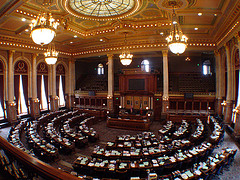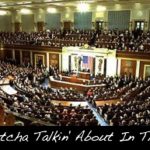Announced Thursday, the House of Representatives voted to approve (266-154) the ‘American Housing Rescue and Foreclosure Prevention Act’ (A.K.A. HR 3221). This bill is Congress’ most comprehensive attempt thus far to address the foreclosure concerns in the US. It’s important to remember that this bill must go on to the Senate for a vote and then get signed into the law by the President. So – really, this is just a handy dandy update.
Here’s the main points this bill addresses (directly from the House of Representatives Website):
Amendment 1:FHA Housing Stabilization and Homeownership Retention Act (H.R. 5830)
FHA Modernization (H.R. 1852)
GSE Reform (H.R. 1427)
Encouraging Mortgage Modifications/Castle Bill (H.R. 5579)
Preserving the American Dream for Our Nation’s Veterans
Amendment 2– Tax Provisions to Expand Refinancing Opportunities and Spur Home Buying (H.R. 5720): This amendment provides $11 billion in tax benefits, including tax credits to first-time homebuyers, a real property tax deduction for non-itemizers, an additional $10 billion in mortgage revenue bonds for states, and improves access to low-income housing.
Amendment 3– Miller/LaTourette
- Hopefully there will be some more liquidity for jumbo loans. Making it cheaper to borrow money;
- Those individuals that need some consultation (currently facing foreclosure) will hopefully get it.
- There potentially could be more regulation over Fannie and Freddie. Trying to avoid credit crunch concerns in the future.
- This might make mortgage modifications an easier process (I’m not really sure how they will get lenders to cooperate).
- TAX BENEFITS!!! Not too sure on the details yet (I’m sure there will be revisions). It sounds like the government plans to promote tax advantages to stimulate the housing market. I’m not really sure if it will do what they want it to.. but I guess we’ll see.










